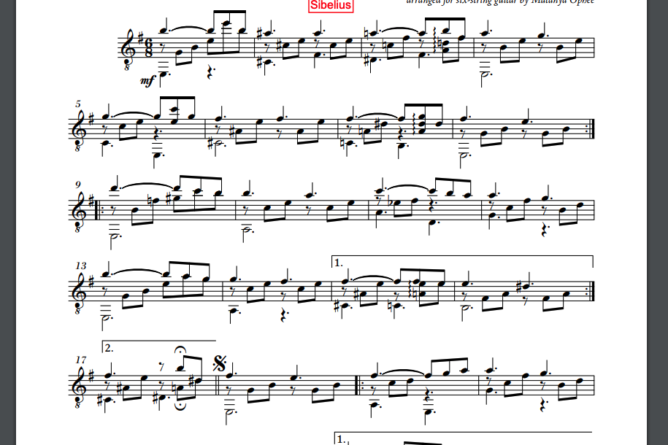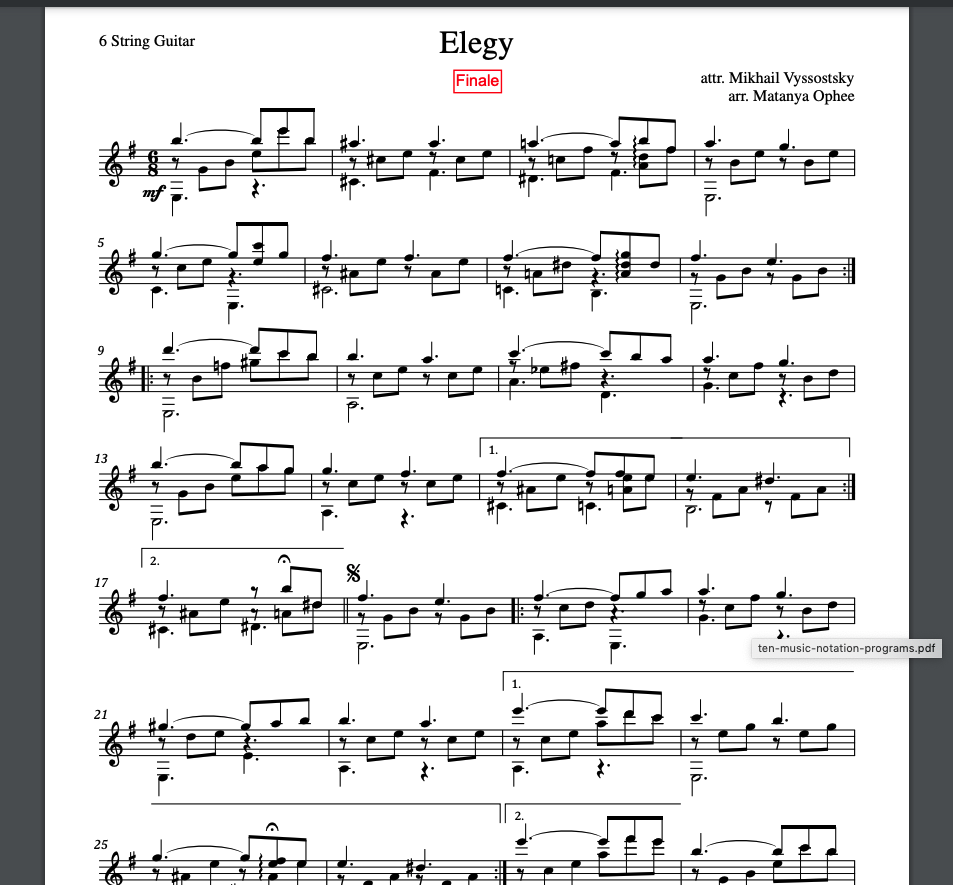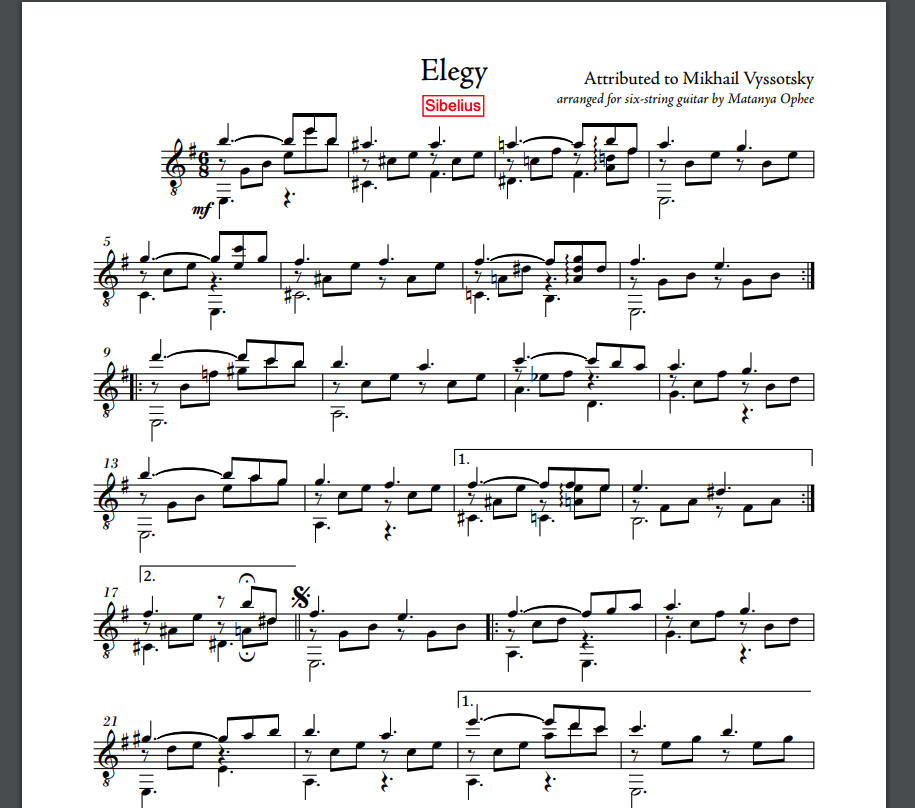The endless debate on which notation software to use seems to now be centered on Finale vs. Sibelius vs. Dorico. I’ve been using Sibelius since 2007 and I love it, while at the same time I feel a little shame that I haven’t mastered Finale. Here are some of the reasons why I’m once again sticking with Sibelius (while also feeling ashamed).
My first notation software was back around 1989. I think it was called “Composer”. It was really tedious and buggy but I did manage to publish a book of piano pieces with that early software. For me, notation software was a game-changer even back then because my handwriting is illegible in both hand print and music scoring. I’m very fast at typing so notation software was an easy switch in that regard.
Fast forward to 2007 when I was commissioned to write a musical. I bought Finale notation software and started to learn it and score my new musical. After a full month I had written very little music. I was totally stymied by Finale and it destroyed my creative process to a standstill. I found Sibelius and bought a cross-grade from Finale. I completed three song sketches in just the FIRST DAY working with Sibelius. For my creative process the decision was clear that Sibelius was the clear winner if I wanted to get any work done at all.
Forward to 2021 and I’ve now scored four full-length musicals using Sibelius. All four musicals went to the stage and endured the critical crucible of endless score changes and song re-writes. Sibelius was wonderful to use during those rigorous rehearsal schedules. Not only practical, but Sibelius is even fun to use.
Now for the shame that I feel. I do realize that the industry standard in professional shows for notation is Finale. It seems every orchestrator uses Finale and also most of the Broadway composers (except Stephen Schwartz uses Sibelius and I also love his work). My “day job” is usually as music director for professional shows and my experience has been that all the composer assistants and orchestrators use Finale. But as music director I don’t have to create those scores, I just direct and play the music already engraved. So that is how I have worked in professional entertainment for so many years without mastering Finale.
Two weeks ago I decided to overcome my Finale shame and finally master the program. I did all the Finale tutorials that came with the program, imported my Sibelius XML files to re-do them in Finale. The experience has been painful. Working with Finale, for me, is not just “unfun”, it’s physically painful with the bizarre combination of shortcut keys. So just like back in 2007, I once again hold my head in shame that I just can’t use Finale as my main notation software.
In my experience, Finale is the industry standard and used by the vast majority (if not all) of professional music engravers. The bulk of Finale users also say that once you get past the steep learning curve that the software is ultimately fast and flexible. But for COMPOSERS, it seems that many prefer Sibelius for its ease of use.
Sibelius vs. Finale vs. Dorico
Is the final notation the main concern? Here are three samples of the same sheet music in Sibelius, Finale and Dorico:
DORICO
FINALE:
SIBELIUS:
In these examples, Finale is the clear winner to me. If I was just engraving the music I would choose Finale. But if I was COMPOSING this music from scratch, I would choose Sibelius. Because at the current time, I would never finish composing the piece in Finale, but composing this in Sibelius would be fun and efficient with my workflow.
DORICO
So why aren’t I switching to Dorico? The main reason is that I’m old enough to have burned too many times in the past by jumping into the “up and coming” software only to get burned later. I was using Steinberg-Jones products back in the 1990’s with physical dongles that served as copy-protection. Those products were eclipsed by other products and the time investment in learning those softwares was essentially wasted.
When it comes to software, I don’t buy products any more until they have already become one of the industry standards. In marketing terms, this makes me an “anti-new adopter”, or the last of the curve that will buy a product. This is not a slam on Dorico in any way. I actually have the demo downloaded and plan to take a look at it. I wish their team all the best in coming years as they jockey to become one of the industry standards.
MY ADVICE
Here’s my advice since you didn’t ask for it.
SIBELIUS
- If you have a new notation or chart project that you have to finish right away
- If you are a composer, who always needs to get projects done right away
FINALE
- If you’re ready to spend some time overcoming that steep learning curve
- You want to know that you’re using the industry standard, particularly if you are a college student with a long career ahead. Worth the time investment.
DORICO
- Check it out if you’re an “early adopter” type personality and it doesn’t bother you that you might have to learn a different notation software down the road
I wish I wish wish:
- that I could create as effortlessly in Finale as I do in Sibelius
- that Sibelius still had as active of a development team as back in the day
- that Sibelius did not switch to the horrible ribbon user interface in Sibelius 7 (Sibelius 6 was much easier to use for me)
- that an industry standard would prevail that was also intuitive to use without the steep learning curve



